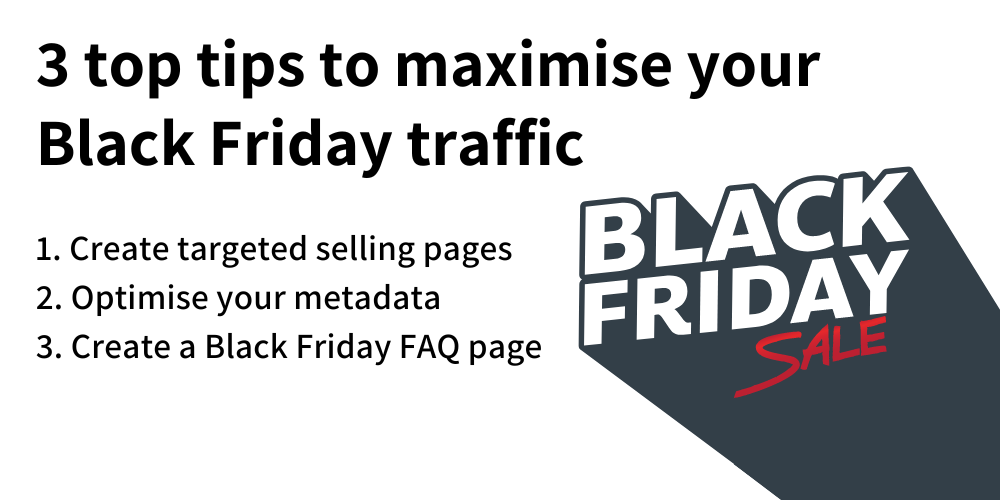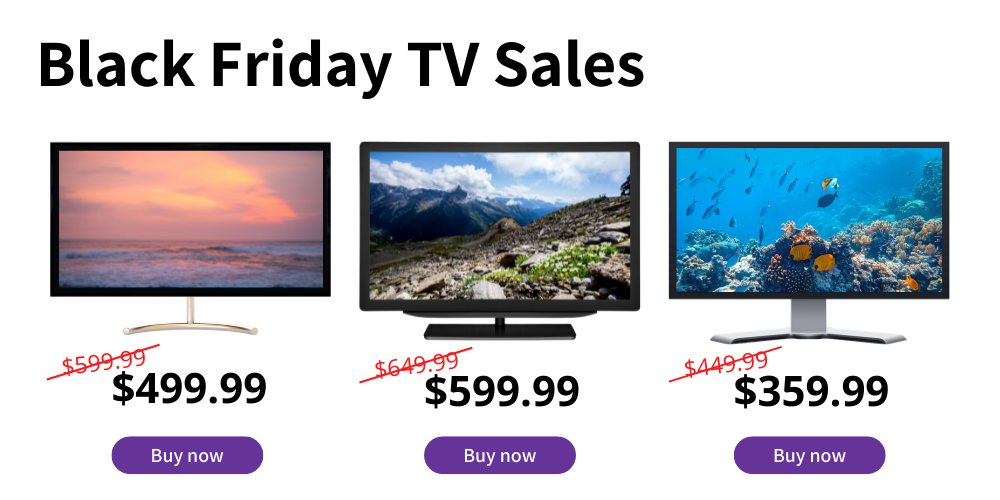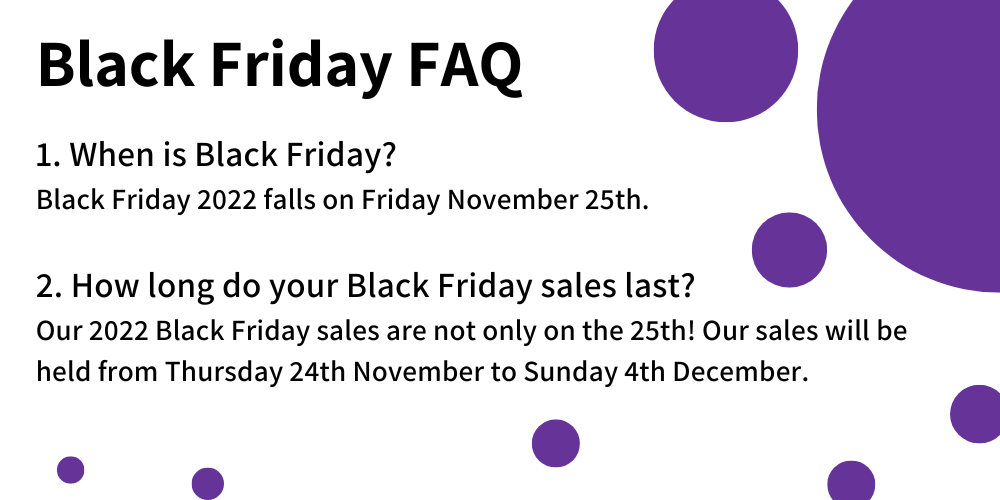Black Friday SEO: How to win big in this sale period
26 September 2022 Blog Posts
Black Friday first began all the way back in the 1950s in Philadelphia, USA when shoppers flocked from the suburbs the day after Thanksgiving to stores promoting huge sales.
Due to the 2020 lockdowns, there was exponential growth in online shopping, which has carried through to Black Friday. Black Friday 2020 was one of the largest shopping days of the year, with an estimated $110B spent online, an increase of 12% from the year before.
Every year, this global shopping event brings even bigger savings for consumers and competition is growing.
This year’s Black Friday falls on Friday November 25th, and with this fast approaching, here are our three top tips on preparing your website to maximise Black Friday traffic:

1. Create targeted selling pages
Depending on the industry your business operates in, consider opening up a dedicated Black Friday selling page. Use keyword research to find out how many people are looking for these specific search terms and match their need with your solution (i.e. their search with your landing page).
For example, if you sell TV’s online, then consider opening up a “Black Friday TV Sales” page. This page would showcase your biggest TV sales. Make sure to include how big the savings are to entice purchases!
This can be replicated for many eCommerce industries, such as “Black Friday Makeup Sales”, “Black Friday Desk Sales” or even “Black Friday Plant Sales”.
We also suggest opening multiple landing pages for each category of products you sell, which will provide you with more opportunities to rank in Google’s search results. This is only a potential option if your business has enough traffic, categories and products to warrant multiple pages. As a rough guide, if you have over 10 high-selling products in a category you intend to sell for Black Friday, then consider creating it into a specific landing page.
These pages then can be utilised for all of your other marketing channels as a landing page, such as social media, email marketing or Google Paid Ads.

2. Optimise your metadata
Use keyword research to determine which Page Titles, Meta Descriptions & H1’s you should implement for each page.
Some initial examples for this include Black Friday-related keywords, such as “Black Friday sales”, “Black Friday deals” and “Black Friday specials”. You should then also make sure to also include your products and product categories, such as “Ford Ranger”, “Clay Earrings” or “Luxury Sheets”. Thereby creating keywords such as “Black Friday Clay Earrings Sales” or “Black Friday Luxury Sheets Deals”.
Learn how to create descriptive metatags from our co-founder Vancho Povoc.
This research is highly recommended not only for your Black Friday campaign, but also for your entire digital marketing strategy.
Keyword research will uncover what your customers are searching for online, and this is absolutely essential to crush your SEO. It will assist in understanding your competitors, identifying low hanging SEO wins, generating content ideas and understanding searcher (and buyer) intent.

3. Create a Black Friday FAQ page
This page can answer some frequently asked questions that your customers ask year on year. Some examples include:
- When is Black Friday?
- How long do your Black Friday sales last?
- What are your best Black Friday deals? Tip: link your products with a higher profit margin here.
- What is your return policy? Is it different for Black Friday?
- Do you offer delivery or click and collect for Black Friday sales?
- Can customers place sale items on hold or layby?
- Are your Black Friday sales only online or can they shop in-store?
A Black Friday FAQ page is another page that you could rank for in Google results. We recommend making this page as a general FAQ and then creating additional pages for Black Friday Sales for each (large) category of products you sell.

Black Friday is soon approaching. Don’t miss out on this lucrative opportunity to boost your online sales in preparation for the Christmas season!





